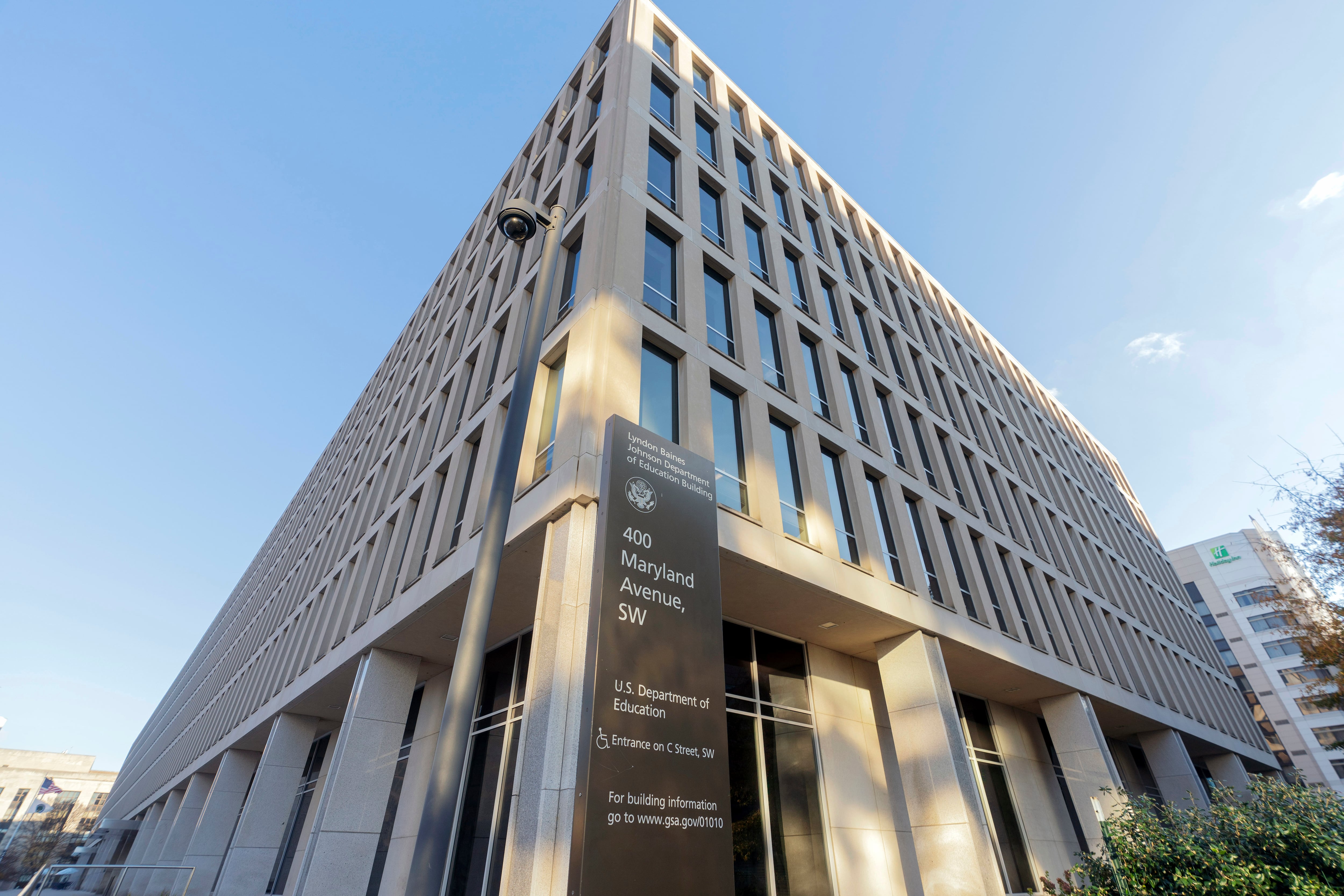NEW YORK (AP) — Starting next month, the Education Department says student loans that are in default will be referred for collections.
Roughly 5.3 million borrowers are in default on their federal student loans and soon could be subject to having their wages garnished.
Referrals for collection had been put on hold since March 2020 because of the COVID-19 pandemic, when the U.S. government also paused federal student loan payments and interest accrual as a temporary relief measure. That grace period was extended multiple times by the Biden administration and ended in October.
One of the borrowers facing more severe consequences is Kat Hanchon, who works in higher education information technology in Michigan.
“My stomach dropped immediately as soon as I read (the news),” said Hanchon, 33. “I wanted to throw up because I already live paycheck to paycheck.”
Hanchon said she owes nearly $85,000 in debt between their undergraduate and master’s degrees. And even with an income-driven repayment plan, Hanchon said she could not afford to pay those loans off on top of other expenses including a mortgage and medical bills.
The last time Hanchon remembers being able to make a student loan payment was September 2024. “I couldn’t even afford the like $55 that they were trying to charge me ... because it’s that tight of a budget,” she said.
The department says it will soon begin sending notices on collection efforts, but there are options for borrowers to get out of default.
Here are some key things to know.
How will involuntary collection work?
Beginning May 5, the department will begin involuntary collection through the Treasury Department’s offset program. Borrowers who have student loans in default will receive communication from Federal Student Aid in the upcoming weeks with information about their options, according to the Education Department.
Involuntary collection means the government can garnish wages, intercept tax refunds and seize portions of Social Security checks and other benefit payments to go toward paying back the loan.
What is the difference between delinquent and default in my student loans?
A student loan becomes delinquent when a borrower doesn't make a payment 90 days after its due date. If you continue to be delinquent on your loan for 270 days — or roughly nine months — then your loan goes into default.
While being delinquent affects your credit score, going into default has more serious consequences such as wage garnishment.
What happens when a loan goes into default?
When you fall behind on a loan by 270 days, the loan appears on your credit report as being in default. Once a loan is in default the government will send the borrower into collections.
What can I do right now if my student loan is in default?
The Education Department is recommending borrowers visit its Default Resolution Group to make a monthly payment, enroll in an income-driven repayment plan, or sign up for loan rehabilitation.
Betsy Mayotte, president of The Institute for Student Loan Advisors, recommends loan rehabilitation as an option.
Borrowers in default must ask their loan servicer to be placed into such a program. Typically, servicers ask for proof of income and expenses to calculate a payment amount. Once a borrower has paid on time for nine months in a row, they are taken out of default, Mayotte said. A loan rehabilitation can only be done once.
What does forbearance mean?
Student loan forbearance is a temporary pause on your student loan payments granted to borrowers who are experiencing financial difficulties. To apply for forbearance, borrowers must contact their loan servicer.
Borrowers can be granted forbearance by their loan servicer for up to 12 months but interest will continue to accrue during this period.
Forbearance is not an option for borrowers whose student loans are in default. However, they are an option if you are delinquent on your loan.
How can a borrower find the status of their student loans?
Borrowers need to know the status of their student loans in order to find out if they are in default, said Kate Wood, student loans expert at NerdWallet.
To find the status of a student loan and their loan servicer information, borrowers need to access their studentaid.gov account. Since the Education Department is going to send notices about involuntary collections through email, borrowers want to make sure all their personal information is updated such as email and physical address, Wood recommended.
Can involuntary collections affect my Supplemental Security Income?
Yes, benefits from Social Security are considered income and can be affected by involuntary collections.
How does delinquency affect my credit score?
Borrowers who are delinquent on their student loans take a massive hit on their credit scores, said Wood. Those who are delinquent on their student loans might see a drop of one hundred points or more to their credit score. A delinquency stays on your credit report for seven years.
Credit scores are used in many aspects of people's financial lives such as access to credit cards, buying a house or renting an apartment.
Can I apply to income-driven repayment plans?
Income-driven repayment plans applications are currently open. These plans base your monthly student loan payment amount on your income and family size.
The Biden administration's SAVE program is no longer open for applications since it was challenged in court. However, those who got accepted into the SAVE program are currently in administrative forbearance, meaning they don't have to make payments.
To review income-driven repayment plan options, you can check the loan simulator at studentaid.gov.
___
The Associated Press receives support from Charles Schwab Foundation for educational and explanatory reporting to improve financial literacy. The independent foundation is separate from Charles Schwab and Co. Inc. The AP is solely responsible for its journalism.













